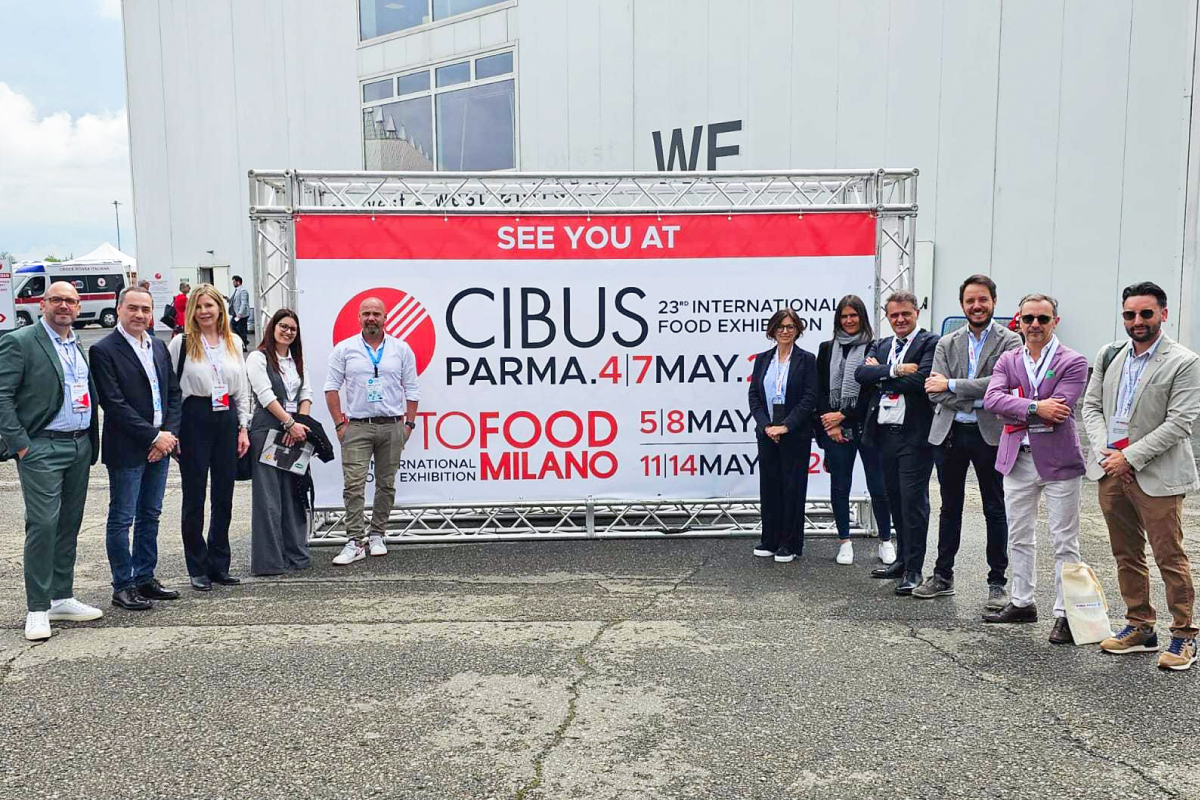Food logistics is not merely an operational issue. It’s a key element for food safety as well as economic and environmental sustainability. It definitely plays a crucial role in the success of Made in Italy goods on a global scale: within the context of an integrated, multichannel supply chain, genuine products can be preserved by means of a responsible Cold Chain, together with precise, reliable traceability tools.
Umberto Torello stated, “Responsible food logistics is of paramount importance in order to ensure products reach consumers in perfect conditions. Our participation in Cibus and Macfrut 2024 has enabled us to demonstrate how our network and infrastructure can provide support to the Italian agri-food sector, highlighting both its quality and its innovation capabilities.”
Indeed, Torello took part in the 2024 editions of the Cibus and Macfrut trade fairs, major events within the Food & Beverage industry. Insights, visions, and data from these two pivotal events can be found below.
Cibus 2024: Food Logistics Making a Difference for Made in Italy products
The Cibus 2024 trade fair held at the Fiera di Parma witnessed a record attendance of 75,000 visitors, 3,000 brands alongside a wealth of buyers. This proved to be a unique occasion for dialogue, moments of reflection, as well as consolidation for key figures of the Food & Beverage sector who gathered here to take part in its 22nd edition.
The event focused on one of the most renowned and appreciated brands worldwide, Made in Italy agri-food: this is a sector which boasts €64 billion in exports, representing approximately 10% of European exports.
Key topics included PDO and PGI products, which, according to Nielsen, contribute to a 14% sales growth in value and 9.6% in volume. Within this context, it is necessary for food logistics businesses to work alongside sector-related companies in order to protect not only the goods but also their reputation.
In addition to geographical indications as well as nutritional and health information, product traceability and the reduction of carbon footprint in logistics emerge as crucial communication tools required to enhance the value of the companies within this industry.
As Daniel Grimaldi points out, “The Italian agri-food sector is already one of the highest examples of efficiency, quality, and sustainability. Investing in conscientious food logistics means promoting both consumer health and brand reputation. Our mission is to make sure that every product maintains its integrity and quality throughout the supply chain. This mission has been further demonstrated thanks to our commitment made to the DIF Network, where we promote temperature-controlled transport, even for foods that are currently not ATP-regulated.”
Sustainable Packaging? Yes (but that’s not enough)
Painstaking attention to sustainability was paid throughout the Cibus 2024 trade fair. It was clearly evident that the target audience for the Food & Beverage Industry desires more ecologically-friendly solutions: data from the Nomisma FMCG Packaging Observatory states that 2 out of 3 Italians choose food and beverages based on their packaging and for half of the respondents, packaging is considered crucial to make the product greener. Throughout the event, innovative solutions were highlighted in order to reduce packaging waste, using eco-friendly materials, together with other best practices to reduce the sector’s carbon footprint.
Nevertheless, no single innovation or technology would ever be able to replace a strategic, cross-modal approach. An effective approach to cold chain management must integrate multiple solutions that go beyond simple transportation, incorporating optimal warehouse management solutions, such as temperature-controlled storage – or load optimisation and smart routing to ensure the efficient, reliable movement of goods.
The agri-food supply chain’s complexity requires a focus on respecting the end customer’s evolving needs, including traceability and sustainability, to preserve and enhance brand reputation.
Macfrut: Italian Excellence in the International Spotlight
Macfrut 2024, a major horticultural supply chain showcase held at the Rimini Expo Centre saw impressive numbers with over 56,000 visitors, a 13% increase from last year, and 1,400 exhibitors occupying 34,000 m2 of exhibition space, attracting 1,500 top buyers and featuring a combination of insights, business opportunities and networking on a B2B platform. This major event has gained an international dimension, with foreign operators and buyers playing an increasingly significant role, accounting for 40% of the exhibitors.
Macfrut 2024 highlighted several case studies and thought-provoking insights. ESG themes were prominently featured, including a conference focusing on the inclusive, sustainable enhancement of the coffee supply chain whose goal is to benefit tropical forests. Other topics dealt with during the event promoted innovation in varieties and products, new agronomic techniques which extend the production period of certain early and late grape varieties as well as horticultural crops that improve nutrient absorption, making it possible to use reduced doses of chemical products.
The Italian horticultural sector can be considered the cornerstone of the Made in Italy Food Industry:
“Boasting 300,000 companies, 1.3 million hectares of cultivated land, € 16 billion in revenue, and € 5.7 billion in fresh product exports, the Italian horticultural sector is constantly growing in appeal among consumers who are becoming increasingly attentive to healthy, sustainable dietary habits. Food logistics, more specifically the ability to distribute fresh products, becomes a key factor when it comes to ensuring quality and food safety. This goal can only be achieved by adopting a collaborative approach among the various players along the supply chain,” commented Ferdinando De Caro.

